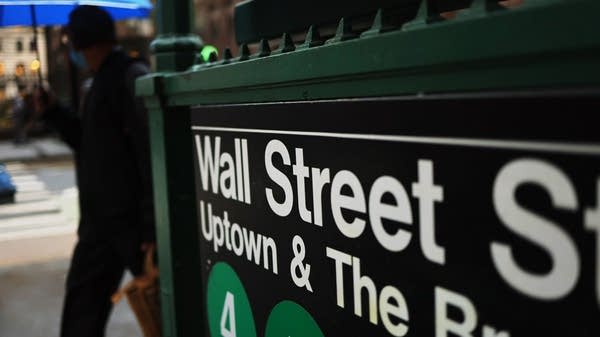Bigger companies have been dipping their toes back into the bond market. Smaller ones, not so much.
Borrowing isn’t cheap right now, especially for riskier businesses.

Bond markets have become volatile thanks to the president’s tariffs and the damage they could do to the economy.
Investors have been especially nervous about pouring money into corporate bonds. Lower demand means lower prices. And, with bonds, lower prices mean higher yields — higher interest rates on the money a company's borrowing by selling the bond.
This time a month ago, the corporate bond market had all but shut down. But since then, a handful of big corporations have issued new debt: Apple, Alphabet, Procter & Gamble, and GM.
One reason companies have been issuing new bonds recently is that investors think they’re a good buy right now.
Guy LeBas, chief fixed income strategist at Janney Montgomery Scott, said over the last month, “There was a lot of bond market volatility, corporate bond prices fell, and they fell to a point where buyers were happy to step in.”
LeBas said investors also think some companies can weather tariffs better than others.
“You know, larger companies are generally ones with more pricing power. So they can pass on costs more easily than can others,” said LeBas.
Big companies are issuing bonds to pay for big projects and to refinance existing debt.
“If you think back five years ago, you know, rates were exceptionally low, and five year notes that were issued back then are now coming due,” said Maureen O’Connor, global head of high grade debt syndicate with Wells Fargo.
But many companies are still reluctant to issue new debt.
Matteo Arena, a finance professor at Marquette University, said that includes companies that are more likely to default if the economy takes a turn for the worse.
“If I had to pick a couple of industries that are more exposed to this, it would be biotech companies, and small, young software companies,” said Arena.
Many of these companies are known as high-yield bond issuers. They’re riskier, so they have to shell out more interest on top of today’s elevated interest rates.
Chuck Tomes at Manulife Investment Management said they’d rather not.
“Unless they’re being forced, or under extreme need to refinance, they’re going to be a little more patient,” said Tomes.
And while they’re waiting, they’re less likely to invest or expand.
Tomes said if they eventually have to take on more debt in order to pay the interest, they might have to make cuts.
“Whether it be potential employees, or cut existing employees to try to continue to keep their underlying business solvent,” said Tomes.
Tomes said that’s going to depend on where interest rates go in the near future.













